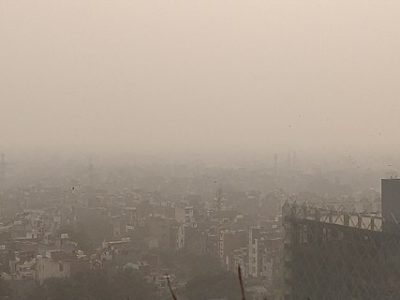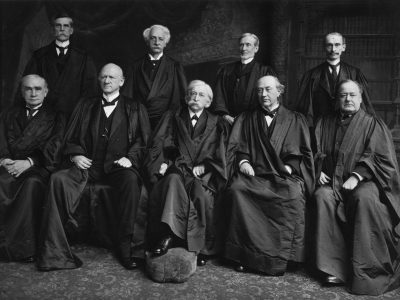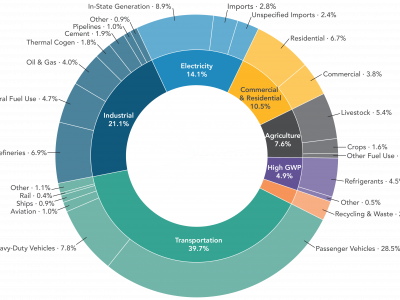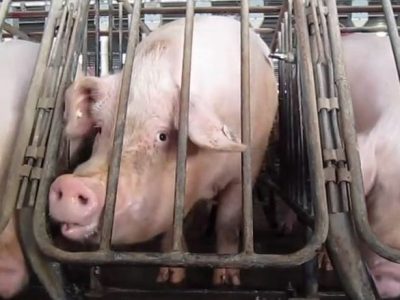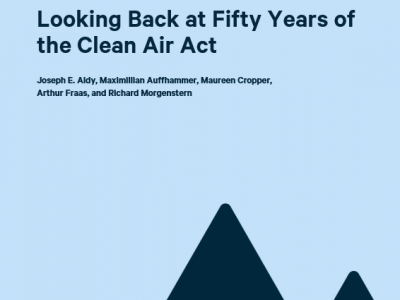Air Quality
Not The Winds Of Change We Wanted
Bombay’s recent air quality crisis shows us our future
For several years, India’s capital of Delhi has been synonymous with awful air quality: just living there is the equivalent of smoking nearly 2,000 cigarettes a year. So it shocked me when the Indian Express reported that last week, Bombay’s air was even worse than Delhi’s. Delhi’s AQI last week was an abysmal 263; but …
Continue reading “Not The Winds Of Change We Wanted”
CONTINUE READINGThe Supreme Court’s Earliest Pollution Cases
Long before Congress, a notoriously conservative Court started taking pollution seriously.
Well over a century ago, the Supreme Court ruled that it had that power to remedy interstate water pollution. That was in 1901. Six years later, the Court decided its first air pollution case. Notably, these cases came during the conservative Lochner era when the Court was hardly known for its liberalism. Quite the contrary. …
Continue reading “The Supreme Court’s Earliest Pollution Cases”
CONTINUE READINGCalifornia’s Secret Weapon: The Scoping Plan
There’s no substitute for a comprehensive policy vision.
The scoping process has been key to California’s success in cutting greenhouse gas emissions. The process requires the government to assess past progress, project future emissions, and come up with a strategy to meet its climate goals. In contrast, in many states – and at the federal level – there’s no real mechanism for a …
Continue reading “California’s Secret Weapon: The Scoping Plan”
CONTINUE READINGEPA Proposes Rejection of San Joaquin Valley Air District PM2.5 SIP Submittal
Emmett Institute White Paper Cited to Demonstrate Proposal’s Insufficiency
Earlier this month, EPA announced its proposed disapproval of San Joaquin Valley’s State Implementation Plan (SIP) submittal to address fine particulate matter (PM2.5) pollution. Among EPA’s reasons for proposing disapproval of the plan: The strategies to reduce building heating emissions—from things like water heaters and space heaters—were inadequate because they failed to consider zero-emission standards. …
Continue reading “EPA Proposes Rejection of San Joaquin Valley Air District PM2.5 SIP Submittal”
CONTINUE READINGWhat Do Pig Pens Have To Do With Environmental Law?
Constitutional Challenge to California’s Animal Welfare Law Could Have Profound Impacts on State’s Environmental Laws
Today the U.S. Supreme Court will hear oral arguments in an animal welfare case from California that could have profound, negative impacts on a host of the Golden State’s environmental laws and policies. The case is National Pork Producers Council v. Ross, No. 21-468. The National Pork Producers Council litigation arises from an initiative measure–Proposition …
Continue reading “What Do Pig Pens Have To Do With Environmental Law?”
CONTINUE READINGAddressing Livestock Methane in California
New CLEE/UCLA report identifies policy solutions to reduce emissions | Webinar Nov. 10
Methane is a climate super-pollutant that is 80 times more powerful than carbon dioxide over a 20-year period. Given its potency and short life, experts believe that reducing methane emissions is the highest-yield action that governments and businesses can take to curb near-term warming. In the US, livestock are responsible for over one third of …
Continue reading “Addressing Livestock Methane in California”
CONTINUE READINGA Design Flaw in the Clean Air Act
Why have technology-based standards if you have air quality standards?
The Clean Air Act has two kinds of standards. It sounds like having two kinds of standards should improve air quality more than a single standard. But in reality, one type of standard can result in canceling out the benefits of the other type. If you understand the statute, this is actually pretty obvious once …
Continue reading “A Design Flaw in the Clean Air Act”
CONTINUE READINGMaking Fossil Fuels Pay for Their Damage
A carbon tax doesn’t seem to be in the cards. Maybe a clean-up tax would fare better.
Production and combustion of fossil fuels imposes enormous costs on society, which the industry doesn’t pay for. I want to talk about some options for using the tax system to change that. One option, a tax on carbon dioxide emissions, gets the most attention but seems politically impossible. The closest we’ve ever come to a …
Continue reading “Making Fossil Fuels Pay for Their Damage”
CONTINUE READINGTaking A Data-Driven Tour of Air Pollution Law
After Half a Century, What Do We Really Know about the Impacts of the Clean Air Act?
Earlier this year, a team of economists published a retrospective paper on the Clean Air Act. It surveys the economic literature to find out what the data tells us about emission trading systems, the effects of pollutants, and effects of imposing tougher regulatory requirements in areas that failed to meet national air quality standards. Some …
Continue reading “Taking A Data-Driven Tour of Air Pollution Law”
CONTINUE READINGClimate Change and the Major Question Doctrine
Just because a regulation involves climate change, that doesn’t make it a major question.
Red State AGs are preparing to go to town with the West Virginia case. They seem to think that everything involving climate change automatically becomes a major question. That’s simply wrong. The doctrine is more nuanced. Recall that the Supreme Court struck down OSHA’s vaccine mandate, essentially on major questions grounds, but the majority found …
Continue reading “Climate Change and the Major Question Doctrine”
CONTINUE READING




